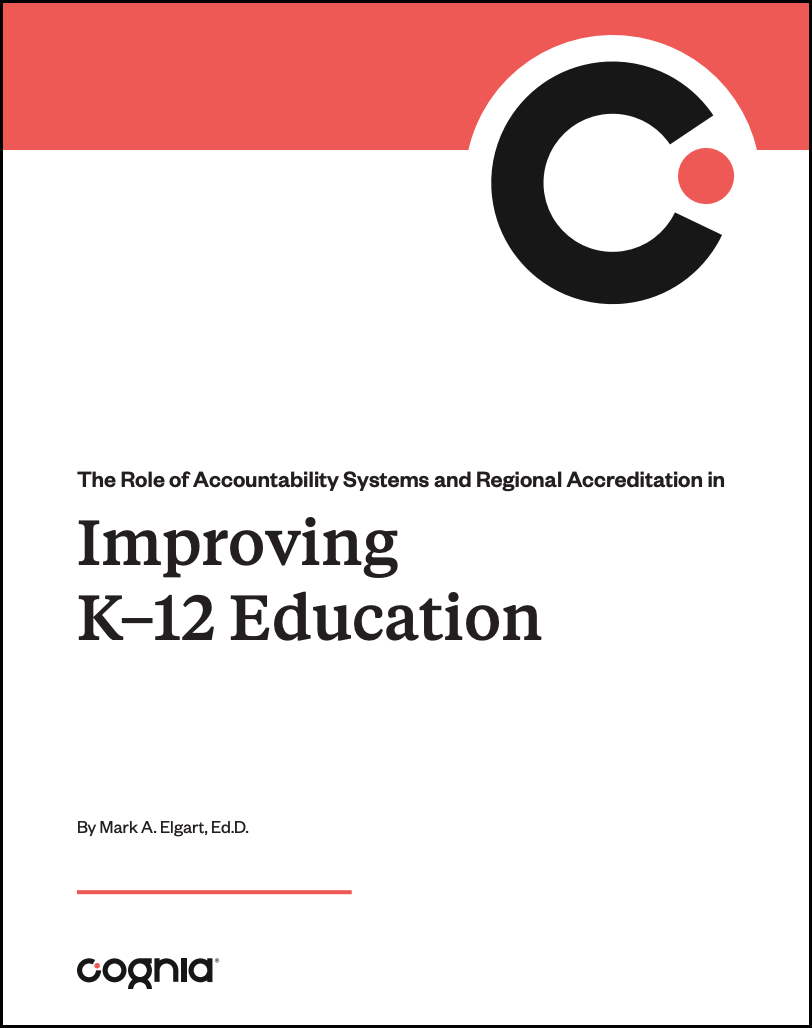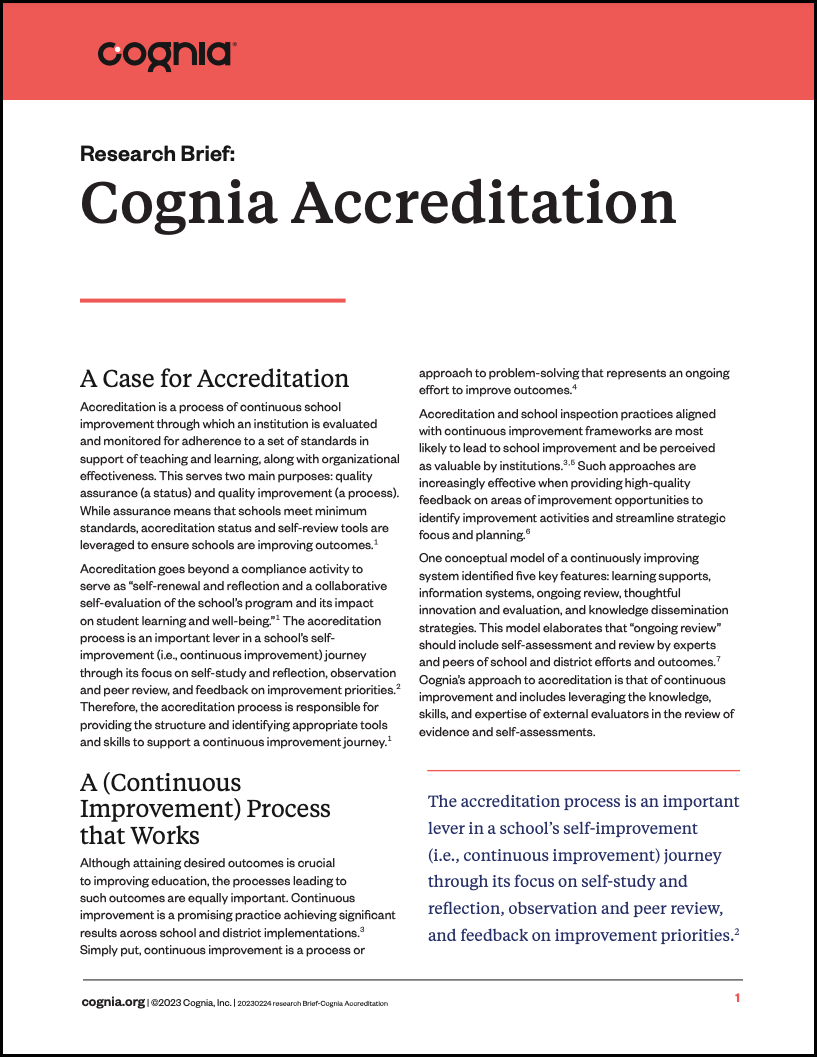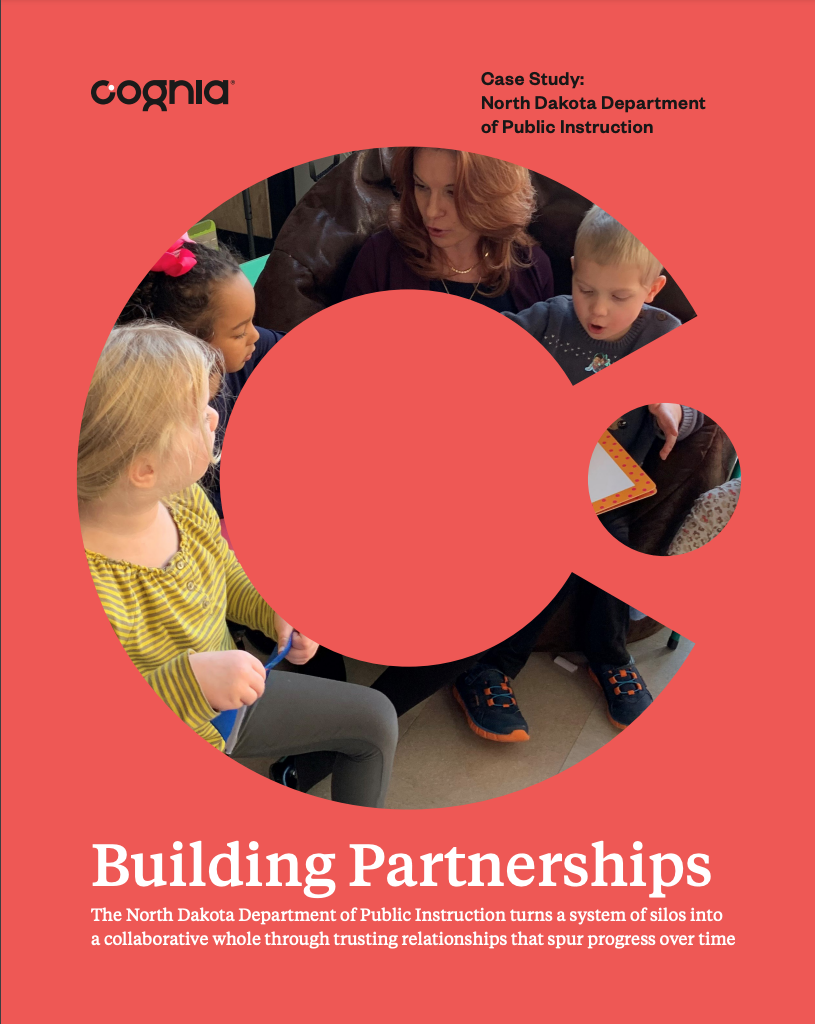We hope you have enjoyed this edition of The Source. Want to learn more? We have compiled additional resources for your information.
The Role of Accountability Systems and Regional Accreditation in K-12 Education: This paper looks at the roles of state accountability systems and regional accreditation in improving K-12 Education, and identifies five ways states, districts and schools can get the best out of state accountability and voluntary regional accreditation. What do schools need to know about their own operations that can help them continuously improve and achieve the results we expect? Accountability reports yearly success factors for historical analysis. Accreditation identifies root causes of issues so schools can take actionable steps to improve moving forward. Accreditation and accountability are distinct yet complementary—together they have a powerful role in improving K-12 education.
Research Brief: A Case for Accreditation: In the following research brief, we outline key research related to the process of accreditation, Cognia’s unique approach, and findings related to improvement in Cognia-accredited schools. The brief describes research on the value of school accreditation, sometimes referred to as “school inspection,” and its relationship to school improvement, primarily through its emphasis on both self-reflection and third-party review. Further, it highlights research on continuous improvement models and continuously improving systems, which laid the groundwork for Cognia’s accreditation framework. The brief shares initial findings related to improvements and positive outcomes associated with participation in Cognia accreditation.
NDDPI Case Study: In 2013, the North Dakota Department of Public Instruction (NDDPI) contracted Cognia to provide continuous improvement services for all public schools and districts within the state. That statewide partnership was the first of its kind, and it has led to Cognia supporting an increasing number of NDDPI divisions, such as the Office of Assessment, the Office of Special Education, and the Office of Academic Support.
It’s Time to Lean In—How Leaders Should Leverage Community: As a former classroom teacher, principal, assistant superintendent, and a superintendent in three very different districts on both sides of the country, Dr. Jeff Rose, has a solid handle on typical professional development strategies we tend to employ for educators. His knowledge and experience has motivated him to change the model of support for district leaders, one founded in collaboration. Learn how he leverages the power of Community to support district and school leaders with Leadership Circle.
Get More out of Professional Learning: The Cognia Learning Community reflects long-term efforts to build a comprehensive professional learning ecosystem—where teachers and leaders can study and learn from one another and on their own in asynchronous or synchronous environments using relevant, high-quality content geared to improving all aspects of professional practice. More than simply moving traditional professional development online, this represents a shift in mindset about what professional learning for educators can and should be. The goal is to increase educator agency by placing ownership of the learning process in the hands of the learner.
© Cognia Inc.
This article may be republished or reproduced in accordance with The Source Copyright Policy.
The information in this article is given to the reader with the understanding that neither the author nor Cognia is in engaged in rendering any legal or business advice to the user or general public. The views, thoughts, and opinions expressed in this article belong solely to the author(s), and do not necessarily reflect the official policy or position of Cognia, the author’s employer, organization, or other group or individual.



